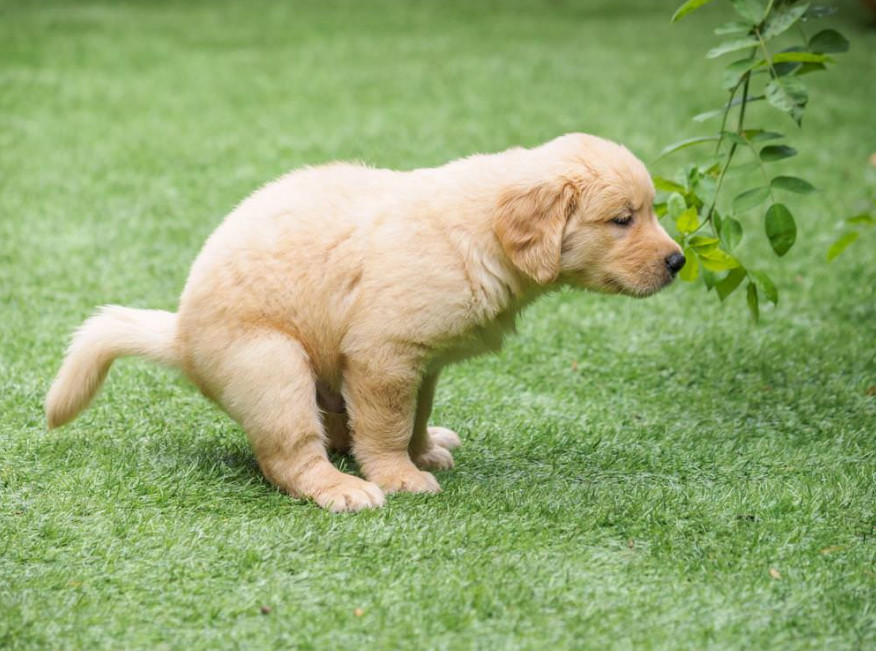
We pet owners are usually highly aware of our dogs’ poop habits. We have to scoop it up every time they are outside. On occasion — particularly when something goes wrong is possible to discover ourselves cleaning up the mess inside!
The occurrence of loose stool is common to all canines from time to time. Actually, signs of stomach upset like diarrhea, vomiting, or loose stool are among the most common reasons that pet owners bring their dogs to the vet. A report for 2019 from Healthy Paws Pet Insurance listed an upset stomach as the top claim for dogs, accounting for over one-quarter of all claims processed.
Concerning health and wellness in humans and animals, more scientists are looking into the gut microbiome, which is a mix of microorganisms, including bacteria living in our stomachs and intestines.
The microbiome’s balance is crucial to regular digestion. We are discovering more and more about how it impacts our overall well-being. If things are off in the microbiome, the loose stool is the most common consequence.
What causes loose stool in Dogs
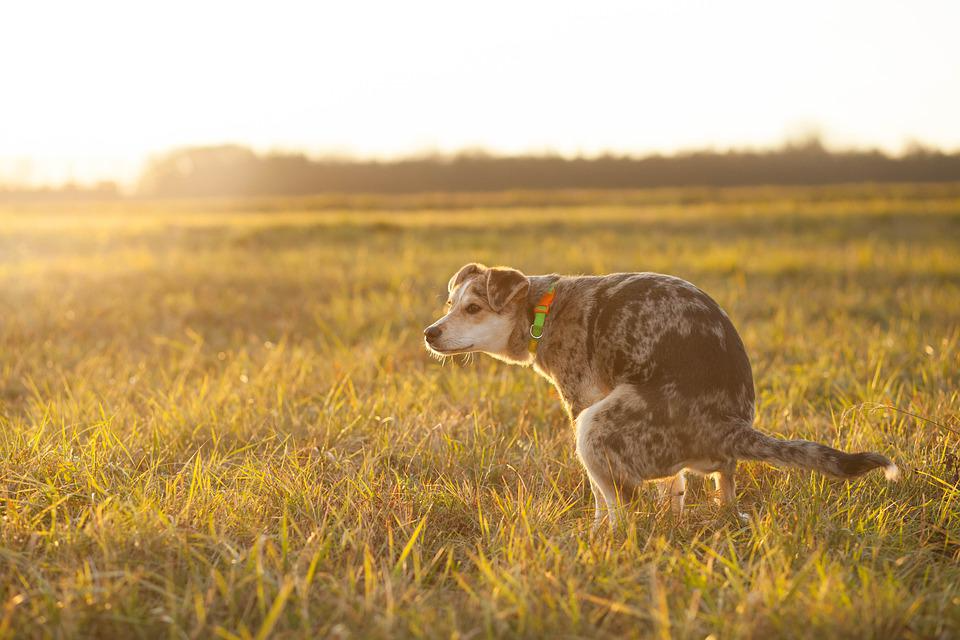
There are a variety of reasons for a dog’s stool being loose. To ensure that your dog’s gut is clean and reduce the disarray, be attentive to the following typical reasons:
The abrupt change in diet
One of the main reasons for loose stool is that it can be caused by pet owners switching from one type or brand of food without a gradual change. It is generally believed that eating food that isn’t a normal diet for dogs could result in loose stool. Dogs that are used to eating food off the ground or in the garbage will usually have loose stools as a result of this habit.
Food sensitivities
Pets suffering from food intolerances or allergies tend to have loose stools and can also vomit or suffer weight loss. If your dog is suffering from frequently or regularly occurring episodes with the loose stool you should discuss the testing of food allergies or intolerances methods with your vet.
Infections
Animals with various parasites, bacteria, and viruses often experience loose stool. This is why testing fecal samples is crucial in any type of diarrhea and loose stool among dogs. Common intestinal parasites for dogs include hookworms, roundworms, and Giardia. These parasites can also be considered to be zoonotic. That means they can also infect humans!
Certain kinds of bacteria could cause dogs to experience loose stool. The majority of times, this happens caused by intestinal dysbiosis an illness in which the normal mix of microbiome bacteria is disturbed and harmful bacteria multiply. Raw food diets for dogs could expose them to harmful bacteria like Salmonella or E. E. coli that can cause loose stools, especially in dogs who are young or those who have lower immunity.
Another reason for loose stools among puppies or non-vaccinated dogs are the parvovirus (or parvo). The infection is life-threatening. Any puppy that has loose stool, especially when it is accompanied by nausea, lethargy, or diminished appetite — should get checked by a vet immediately.
Stress
Based on recent research into the brain-gut connection stress may also cause some dogs to develop loose stool. Research has shown that the gut microbiome influences the way the body reacts to stress and stress can have a negative impact on your stomach ( 2).
Other reasons for diarrhea that is loose in canines can be caused by specific cancers, inflammation intestinal disease (IBD) and specific medications, pancreatitis exocrine pancreatic dysfunction (EPI), and toxins. liver disease and kidney disease.
Hidden dangers of Loose Stools in Dogs
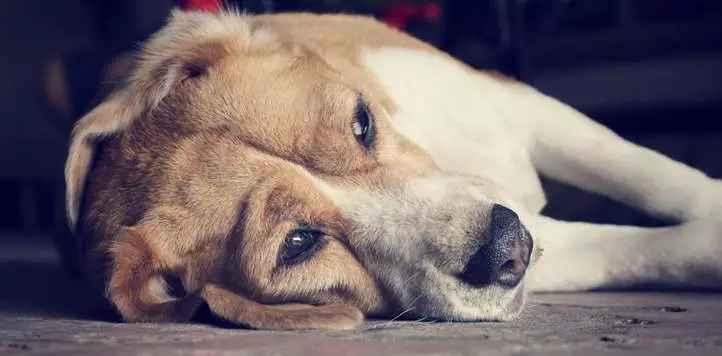
Often it is the case that loose stool in dogs can be quite moderate and disappear in its own. However, in certain instances, the presence of loose stool can signal the presence of a serious issue and may be life-threatening.
While it might sound frightening but there are certain signs and signs that pet owners can observe to distinguish between a mild or more serious condition of loose stool. If you spot any of these symptoms, contact your vet to discuss the health of your dog and its behavior in greater specific detail. An appointment at the veterinarian could be necessary to determine and treat your pet’s condition.
Dehydration
If dogs experience multiple loose stools during the day also known as diarrhea, they can shed more fluid than what they drink which can cause dehydration.
If you need to contact your veterinarian:
- Your dog is suffering from diarrhea that isn’t resolved rapidly, particularly if diarrhea is extremely liquid and frequent. It may also be voluminous, frequent, or even voluminous.
- Apathy (acting tired or tired or)
- Sticky gums
- Sunken-in eyes
- The loss of skin elasticity
It is crucial to see your dog immediately if you observe any of these symptoms because dehydration could be life-threatening.
Malnutrition
If diarrhea or loose stool becomes chronic (lasting longer than 2 to 3 weeks) symptoms of malnutrition and malabsorption may begin to manifest especially when the diarrhea is related the IBD disease, EPI, or cancer. If the intestines are irritated, they are unable to absorb nutrients in a proper manner, and, over time, this could result in serious health issues.
If you need to contact your veterinarian:
- Unusual weight loss
- Muscle mass loss
- Lethargy
- Dull coat
Electrolyte Imbalance
The severity of diarrhea can cause electrolyte imbalances, often resulting in low sodium potassium, and chloride levels. This can be a cause for concern, especially in dogs that suffer from other health issues.
When should you call your vet:
- If your dog is experiencing loose stool and is also suffering from Addison’s Disease, it is a sign. Low sodium levels as a result of loose stool can cause seizures.
- If your dog has loose stool, they may also be suffering from parvo. Very low amounts of potassium levels in pets who have parvo may stop the muscles in the body from working normally.
Sepsis
In certain cases like hemorrhagic gastroenteritis (HGE or acute hemorrhagic diarrhea syndrome AHDS) or parvo infections dogs can develop sick. Sepsis is an extreme inflammation response to infection that can affect the entire body. Sepsis requires hospitalization and if not addressed promptly it can result in organ failure, shock, and even death.
When should you call your vet:
- Extremely explosive diarrhea or stool that contains a significant amount of blood
- Vomiting
- Lethargy
- Lack of appetite
What to do if your Dog has loose stools
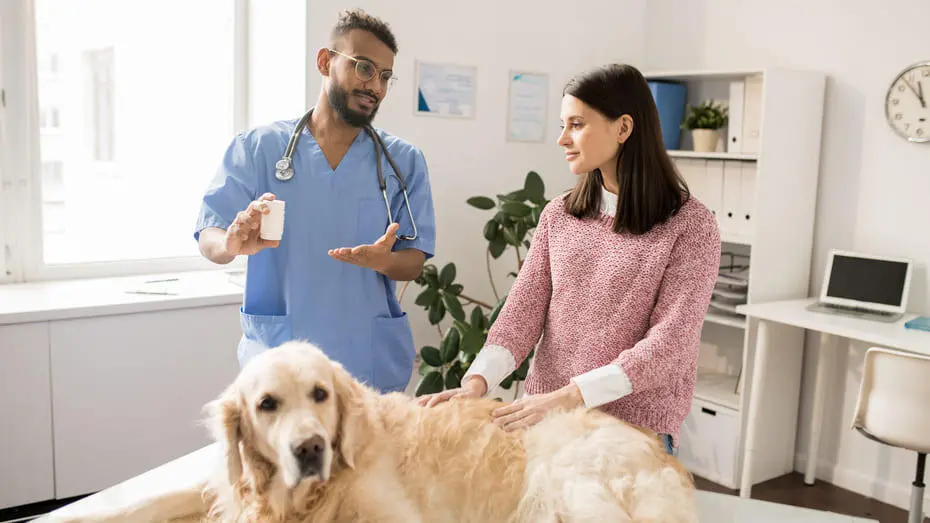
If your dog is suffering from loose stools that last for more than the span of a few days, suffers from episodes that are intermittent or has stool that is bloody or very watery or has other symptoms like vomiting weight loss, loss of appetite, vomiting of appetite or lethargy, visit your veterinarian immediately.
Being prompt when you begin to notice these symptoms is the most effective method to ensure that your doctor is able to identify and treat serious health issues.
If you’re lucky, your doctor is able to rule out more serious issues. If this is the case, like for the majority of mild instances of loose stool your physician is likely to suggest a diet that is bland along with anti-diarrheal medicines and/or probiotics.
What Can A Dog Eat With Stools That Are Loose
If your dog is experiencing loose stool generally, they should be fed a food that’s easy for them to digest. Avoid giving high-fat treats or foods to your dog when they are experiencing stomach issues since it can cause more problems.
The most effective dog food for severe cases of loose stool (diarrhea that has been present for less than 2 weeks) will typically be a prescribed diet specially made for digestive upset.
They are highly digestible, they are rich in prebiotics – a fiber that feeds beneficial gut bacteria. They could have a lower fat content, have ingredients that aid in reducing intestinal inflammation, and have lots of water (if canned versions are employed). The diets are created to be balanced and complete which means that, if needed they may be fed over the long term.
A bland, home-cooked diet can be suggested for those suffering from acute diarrhea. The most common suggestion is without seasoning, with skin not visible, boiling chicken breasts as well as pure white rice. This kind of diet is best fed for a short amount of time because it’s not balanced nutritionally enough to be suitable for long-term consumption.
Pet owners can also consider adding a couple of tablespoons of pure canned pumpkin to their pet’s diet. The pumpkin’s fiber can help in forming the stool and dogs are awed by the flavor!
If you are suffering from chronic diarrhea, your pet’s vet may suggest a hydrolyzed prescription or a new protein diet. Dogs who have food intolerances or allergies and those suffering from IBD tend to improve with these diets.
Probiotics for Dogs with Loose Stools
Probiotics are extremely beneficial for dogs who have loose stool. If dogs consume food that is that isn’t normal or suffer from medical conditions this can trigger changes in their microbiome in the gut, which could result in diarrhea.
Probiotics are beneficial bacteria that aid in restoring balance to the digestive tract. Research has shown that certain probiotic strains may lower the harmful bacteria which can cause diarrhea. Probiotics are also believed to boost the body’s immunity.
It is important to talk with your vet before buying probiotics to your animal. Probiotics aren’t regulated like medicines are, therefore it is important to select one that is supported by research.
Preventing the occurrence of loose Stools in Dogs
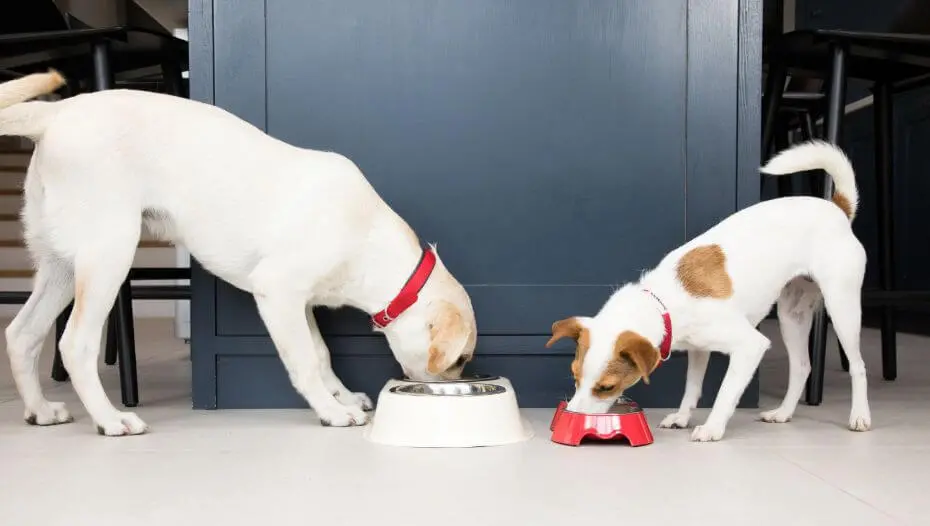
Although there are numerous causes for dogs’ inability to bowel, an imbalanced gut microbiome can be an underlying cause or consequence of the root causes. A healthy microbiome in the gut is essential for the overall health of a dog and ensures that stools are firm and healthy. A well-balanced and healthy diet is the initial step towards maintaining the health of your digestive. If your dog’s stool is loose stool, this is her body signaling to you that something is not right and if the symptoms do not quickly disappear, there could be serious health issues.